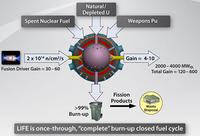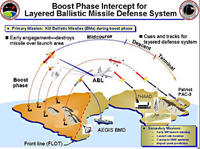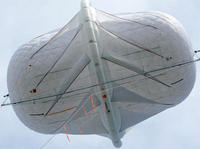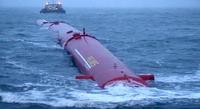-
Regional, global food security effects of climate change to felt soon
Research shows that within the next ten years large parts of Asia can expect increased risk of more severe droughts, which will impact regional and possibly even global food security; on average, across Asia, droughts lasting longer than three months will be more than twice as severe in terms of their soil moisture deficit compared to the 1990-2005 period; China, Pakistan, and Turkey as the most seriously affected major producers of wheat and maize
-
-
Security education is becoming a central part of security hiring, promotion
There is a growing emphasis on homeland security-related education in security hiring in both the private and government sectors; this growing demand has lead to a rapid growth in college and university degree programs in homeland security – the number of such programs is now estimated to be 350; trouble is, those programs do not have a commonly agreed upon curriculum, and as a result, the classes chosen to be part of an individual’s curriculum are based on the available faculty, rather than proven value to the students
-
-
Nuclear waste-burning technology to make nuclear energy more appealing

Toxic nuclear waste is stored at sites around the United States, and the need to store nuclear waste is widely considered to be a major disadvantage associated with nuclear energy; physicists have been granted a U.S. for patent for a novel fusion-fission hybrid nuclear reactor which would use nuclear fusion and fission together; the invention could drastically decrease the need for any additional or expanded geological repositories, making nuclear power cleaner and more viable
-
-
Nanotechnology sensor detects mercury in water, fish

When mercury is dumped into rivers and lakes, the toxic heavy metal can end up in the fish we eat and the water we drink; to help protect consumers from the diseases and conditions associated with mercury, researchers have developed a nanoparticle system that is sensitive enough to detect even the smallest levels of heavy metals in our water and fish
-
-
Radiation-enabled computer chips allow low-cost security imaging systems
With homeland security on high alert, screening systems to search for concealed weapons are crucial pieces of equipment; these systems, however, are often prohibitively expensive, putting them out of reach for public spaces such as train and bus stations, stadiums, or malls, where they could be beneficial; until now
-
-
Himalayan glaciers retreating at an uneven rate, making South Asia water supply future unclear

MI6, the U.K. intelligence service, four years ago predicted that the world’s first water war – that is, war between countries over access to water resources — will take place between India and Bangladesh sometime between 2015 and 2020; the reason for the war: intensifying conflicts over dwindling Himalayas water sources; glaciers in the eastern and central regions of the Himalayas appear to be retreating at accelerating rates, similar to those in other areas of the world, while glaciers in the western Himalayas are more stable and could be growing, a new report says
-
-
Serious limitations make boost-phase missile interception impractical

One of the central elements of President Reagan’s 1983 “Star Wars” ballistic missile defense initiative was boost-phase defense: boost-phase defense systems are intended to shoot down enemy missiles immediately following launch while the rocket engine is still firing; a new congressionally mandated study by the National Research Council study says that to defend against ballistic missile attacks more effectively, the United States should concentrate on defense systems that intercept enemy missiles in midcourse and stop spending money on boost-phase defense systems of any kind
-
-
More accurate method for predicting hurricane activity devised
Researchers have developed a new method for forecasting seasonal hurricane activity that is 15 percent more accurate than previous techniques; the new approach should give policymakers more reliable information than current state-of-the-art methods
-
-
At least 200,000 tons of oil, gas from Deepwater Horizon spill consumed by bacteria

Researchers have found that, over a period of five months following the disastrous 2010 Deepwater Horizon explosion and oil spill, naturally occurring bacteria which exist in the Gulf of Mexico consumed and removed at least 200,000 tons of oil and natural gas that spewed into the deep Gulf from the ruptured well head
-
-
The spring 2010 BP oil disaster could have been prevented: expert
The BP oil disaster in the Gulf of Mexico during the spring of 2010 could have been prevented if the experiences of earlier disasters had been put to use, an expert claims; the U.S. government is now accusing BP of gross negligence and deliberate misconduct, and taking the company to court
-
-
The historical and future probabilities of 9/11-size terrorist events
On the eleventh anniversary of the 9/11 attacks, two statisticians apply statistical methods to try and accurately estimate the probability of a 9/11-size terrorist attack occurring during the next decade; examining the historical data from 1968 to 2007, they show that the likelihood of a 9/11-size attack occurring within this time frame was between 11 and 35 percent; looking forward, the likelihood increase to between 25 and 50 percent – and, under certain circumstances, to 95 percent
-
-
Bolstering e-mail security
On the whole, security is not a primary concern for most day-to-day e-mails, but some e-mails do contain personal, proprietary, and sensitive information, documents, media, photos, videos, and sound files; the open nature of e-mail means that they can be intercepted and if not encrypted, easily read by malicious third parties
-
-
Canada funds digital technology to enhance maritime security, surveillance
New funding will allow exactEarth to improve its ability to locate more than 80,000 ships daily anywhere around the world and transmit this information quickly to its customers; this data is used within Canada and globally for a number of purposes, including enhancing maritime security and surveillance as well as search and rescue support
-
-
There is enough wind power to meet global energy demand

There is enough energy available in winds to meet all of the world’s demand; atmospheric turbines that convert steadier and faster high-altitude winds into energy could generate even more power than ground- and ocean-based units
-
-
Predicting waves’ height, force could double marine-based energy

In the search for alternative energy, scientists have focused on the sun and the wind; there is also tremendous potential in harnessing the power of the ocean’s waves, but marine energy presents specific challenges that have made it a less promising resource; one of these challenges is the fact that waves differ in terms of their size and force; forecasting wave height one second in advance optimizes energy collection
-
More headlines
The long view
A Shining Star in a Contentious Legacy: Could Marty Makary Be the Saving Grace of a Divisive Presidency?
While much of the Trump administration has sparked controversy, the FDA’s consumer-first reforms may be remembered as its brightest legacy. From AI-driven drug reviews to bans on artificial dyes, the FDA’s agenda resonates with the public in ways few Trump-era policies have.
Risk Assessment with Machine Learning
Researchers utilize geological survey data and machine learning algorithms for accurately predicting liquefaction risk in earthquake-prone areas.
Foundation for U.S. Breakthroughs Feels Shakier to Researchers
With each dollar of its grants, the National Institutes of Health —the world’s largest funder of biomedical research —generates, on average, $2.56 worth of economic activity across all 50 states. NIH grants also support more than 400,000 U.S. jobs, and have been a central force in establishing the country’s dominance in medical research. Waves of funding cuts and grant terminations under the second Trump administration are a threat to the U.S. status as driver of scientific progress, and to the nation’s economy.
The True Cost of Abandoning Science
“We now face a choice: to remain at the vanguard of scientific inquiry through sound investment, or to cede our leadership and watch others answer the big questions that have confounded humanity for millennia —and reap the rewards.”
Bookshelf: Smartphones Shape War in Hyperconnected World
The smartphone is helping to shape the conduct and representation of contemporary war. A new book argues that as an operative device, the smartphone is now “being used as a central weapon of war.”
New Approach Detects Adversarial Attacks in Multimodal AI Systems
New vulnerabilities have emerged with the rapid advancement and adoption of multimodal foundational AI models, significantly expanding the potential for cybersecurity attacks. Topological signatures key to revealing attacks, identifying origins of threats.
